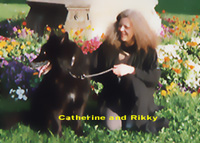Deleting words from Microsoft Word dictionary Thread poster: IanW (X)
|
|---|
IanW (X)
Local time: 20:45
German to English
+ ...
Hi there - I have quite a simple question which the Microsoft Word help function doesn't seem to cover at all.
For some strange reasons, my Microsoft Word English dictionary accepts the word "und" meaning that it doesn't come up in the spell-check, which could lead to problems at some stage. Adding a word is easy, but is there any way of removing it again? I have Microsoft Word 2000.
Any comments appreciated - thanks, Ian.
| | | | Robert Zawadzki (X) 
Local time: 20:45
English to Polish
+ ...
| Not a solution but a quick workaround | Jun 4, 2003 |
I have words in Polish that are accepted, but I do not want to use them. I set the AutoCorrect function to change them to something bizarre (in your case und -> undxxxxxx), and I have the required effect.
| | | | | Try Tools/options/spell-check/dictionaries | Jun 4, 2003 |
Sorry, I don't know the menu names in English...
Then select the default dictionary, and click Edit. There you should be able to remove/delete terms.
Hope it works !
Regards.
| | | | PAS 
Local time: 20:45
Polish to English
+ ...
| user dictionary diet | Jun 4, 2003 |
All user terms (i.e. those you add during a spell check) in MS Word (and other MS Office applications, for that matter) are saved in text files with the extension DIC.
The default file is called "custom.dic"
This is a text file which contains one word/ term per line with a hard return (a hit of the "Enter" key) at the end of each line.
You can use the Explorer to find that file. It is usually found in Applications/Microsoft/Proof, but I don't remember exactly. Just searc... See more All user terms (i.e. those you add during a spell check) in MS Word (and other MS Office applications, for that matter) are saved in text files with the extension DIC.
The default file is called "custom.dic"
This is a text file which contains one word/ term per line with a hard return (a hit of the "Enter" key) at the end of each line.
You can use the Explorer to find that file. It is usually found in Applications/Microsoft/Proof, but I don't remember exactly. Just search for *.dic and you will find it.
Open the file using Notepad and slash and burn to your heart's content. Just remember to leave one word or term per line and to hit the "enter" key at the end of each word/ term.
The words are in alphabetical order, but you can add/ delete in any order you like - Word does not mind.
I just did this recently, deleting things like names of former members of management boards of companies I no longer work for etc.
I also found a few misspelled words - I must have hit the "add" button instead of "change" sometime in the past.
Some additional remarks - the limit of a custom file is, I think, 10 000 lines. If you run out, you just add a new user's dictionary. Call it custom2.dic or whatever. You add a new dictionary in the options menu in MS Word.
You can also edit the dictionaries in MS Word, but remember to save the files under the same name and save them as text files, not Word files!
HTH
Pawel Skalinski ▲ Collapse
| | |
|
|
|
| GREAT explanations, Pavel !! | Jun 4, 2003 |
Really !
I must say thank you, because with these explanations, I've found a way to transfer my Word dictionary which is still on my old computer to the new one. You've helped me to spare a lot of time. I've just copied that file on a CD (floppy disks may be used also, or e-mails from one computer to the other), and copied it again into the Word application on the new computer.
Thank you again
Have a nice night
| | | | IanW (X)
Local time: 20:45
German to English
+ ...
TOPIC STARTER | Thanks, but ... | Jun 5, 2003 |
Thanks guys - great tips. Unfortunately, the word "und" isn't actually in the user dictionary so it didn't work - I presume it's in the main dictionary. Does anyone know if it's possible to edit this?
The "auto-correction" suggestion was a very good idea, but it only helps if you type the word in yourself, whereas most of the time I overwrite the German file. Besides, I often use the word when writing in German ...
Any ideas very much appreciated. Thanks, Ian
| | | | PAS 
Local time: 20:45
Polish to English
+ ...
| this und that | Jun 5, 2003 |
Catherine made a very important point I forgot to mention - save all your DIC files on CD (wouldn't trust a floppy) - if you ever have to change computers or format your drive, you just copy them into the appropriate directory and off you go.
Now the und issue... I just checked in my Polish version of MS Word 2K (with the English dictionary installed) and yes! it also accepts und. How interesting.
I would have thought that maybe your German dictionary butts in needlessl... See more Catherine made a very important point I forgot to mention - save all your DIC files on CD (wouldn't trust a floppy) - if you ever have to change computers or format your drive, you just copy them into the appropriate directory and off you go.
Now the und issue... I just checked in my Polish version of MS Word 2K (with the English dictionary installed) and yes! it also accepts und. How interesting.
I would have thought that maybe your German dictionary butts in needlessly on English text, but I don't have the German dictionary installed and yet...
the only thing I can think of now is to do an additional "find" session after the spell check to weed out all the unneeded "unds".
sigh
Pawel ▲ Collapse
| | | | Ken Cox 
Local time: 20:45
German to English
+ ...
| possible workaround | Jun 5, 2003 |
According to Office: The Missing Manual (Pogue/O'Reilly), the main dictionary cannot be edited (and it is encoded, so it's not worth trying to hack it). A possible workaround is to create an 'exclude' dictionary, which is a list of words that you want Word to treat as misspelled, even though they are listed in a spelling dictionary as correct.
To find out how to do this, look under 'Customise spelling and grammar checking' in Word Help.
BTW, my copy of Word 2000 has ... See more According to Office: The Missing Manual (Pogue/O'Reilly), the main dictionary cannot be edited (and it is encoded, so it's not worth trying to hack it). A possible workaround is to create an 'exclude' dictionary, which is a list of words that you want Word to treat as misspelled, even though they are listed in a spelling dictionary as correct.
To find out how to do this, look under 'Customise spelling and grammar checking' in Word Help.
BTW, my copy of Word 2000 has the same problem (it looks like MS goofed here), but I hadn't noticed it because I usually work with the Mac version. ▲ Collapse
| | |
|
|
|
IanW (X)
Local time: 20:45
German to English
+ ...
TOPIC STARTER
Thanks Kenneth and Pawel - I'll try that!
| | | | To report site rules violations or get help, contact a site moderator: You can also contact site staff by submitting a support request » Deleting words from Microsoft Word dictionary | TM-Town | Manage your TMs and Terms ... and boost your translation business
Are you ready for something fresh in the industry? TM-Town is a unique new site for you -- the freelance translator -- to store, manage and share translation memories (TMs) and glossaries...and potentially meet new clients on the basis of your prior work.
More info » |
| | Trados Business Manager Lite | Create customer quotes and invoices from within Trados Studio
Trados Business Manager Lite helps to simplify and speed up some of the daily tasks, such as invoicing and reporting, associated with running your freelance translation business.
More info » |
|
| | | | X Sign in to your ProZ.com account... | | | | | |







